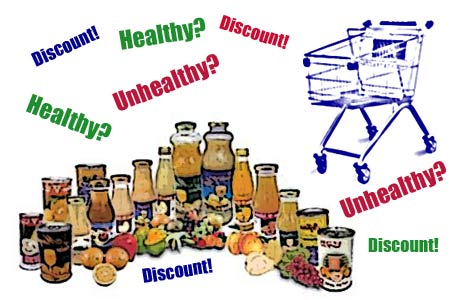Does the word ‘Discount’ excite you? Do you rush to the supermarket, if you hear of an upcoming sale? Well if the answers were affirmative, then its time to think again for your good health. A study, published in Nutrition & Dietetics by Wiley-Blackwell discovered that healthy drinks were less likely to be placed under the discounted bracket.
The study observed that products that were high in fat, sugar and energy beared more discount tags in comparison to the healthy products. Around 1,500 discounts, over a month’s period in four supermarkets across Wellington were observed for this study. And the researchers found that only 15 per cent of all the non-alcoholic drinks discounted were classed as ‘healthy’.
When we are referring to the classification of healthy against the unhealthy, the study termed water, plain reduced-fat milk and plain reduced-fat soy beverages as ‘healthy’ and the ‘unhealthy’ group consisted of sports beverages, sweetened carbonated beverages and flavored waters and cordial.
“Our study shows healthy drinks are discounted less often than unhealthy drinks. But there are more unhealthy drinks available in supermarkets and this may explain some of the difference,” stated author Louise Signal from the University of Otago.
“Given the influence discounts can have on what shoppers purchase, supermarkets could promote healthy options by discounting the products that are nutritious and contain less saturated fat and added sugar” mentioned Claire Hewat, Chief Executive Office of the Dietitians Association of Australia (DAA).
Earlier we always accused of companies to raise the prices and then attaching a discount price tag. But as times change, looks like the strategies have also changed. Hewat also suggests that shoppers should purchase healthier products at the supermarket that will help in battling obesity and weight issues.
In an attempt to tackle obesity issues, DAA plans on making healthy food readily available and affordable for all Australians. They also intend to tighten the government regulation of food marketing, and offer more clarity in terms of nutrition information on food labels.

